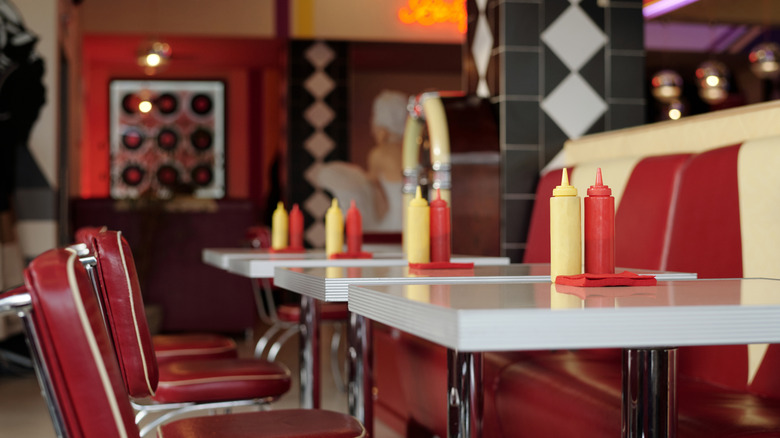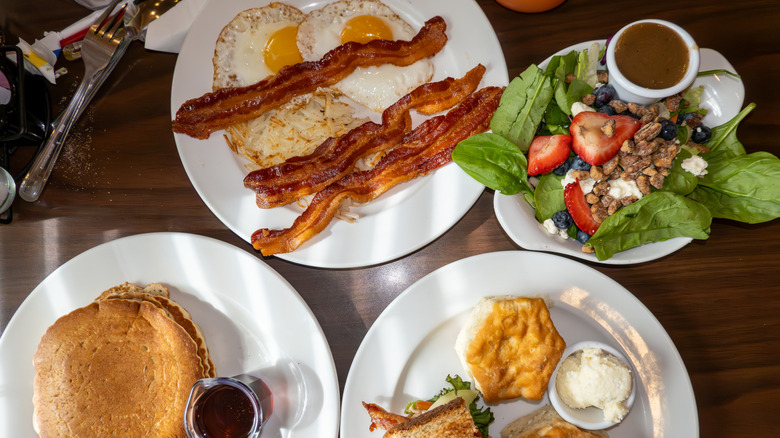Avoid This Go-To Starter Next Time You're At A Diner
When you're faced with a diner's menu of fries, breakfast-for-dinner pancake stacks, and greasy burgers, it may feel like a no-brainer to start your meal off with a salad. While this lettuce-loaded dish may be one of the healthiest options among starter candidates, diner salads are often an afterthought. The ingredients tend to be super-generic and basic, like bags of iceberg lettuce, pre-shredded carrots, and not-quite-ripe tomatoes. A starter salad should probably be added to the list of foods you should never order from a diner, as they typically are disappointing and can even put your health at risk.
The problem isn't necessarily that diners don't care about the quality of their food, but more so that their kitchens are optimized for cooking. Think about all the foods you associate with diners, from big plates of eggs and hash browns to golden-brown waffles and grilled sandwiches. Diners have always traditionally served massive portions of hearty food — light, raw, and health-focused fare is not a specialty or focus here.
Salads require a constant rotation of fresh produce, daily prep, and careful temperature control to prevent wilting. Because these ingredients are cold and raw, they can't be hidden beneath melted cheese to make them taste better. If salads aren't a popular menu item at a diner, ingredient turnover is slow, and the dish isn't really prioritized. Poor storage could even make salads unsafe to eat due to bacterial growth, which is why they are often considered one of the riskiest menu items at chain restaurants.
When salad from a diner is a safe bet
Before heading to a diner, check the menu for salads first. Starter salads are likely going to be pretty sparse, like a house salad, a chef salad, or a Caesar. If the ingredients sound more promising than iceberg lettuce and ranch dressing, it might be worth ordering. Next, check reviews of the diner for photos of the salad to see if it actually looks good, and scan for any reviews that mention salads. When you're at the restaurant, it's always a good idea to ask the server for a recommendation — they may kindly steer you away from the salad option. There are also exceptions to the rule. Some modern diners make an effort to serve proper salads, with flavorful lettuce mixes, premium toppings, and house-made dressing. But if the menu looks like it hasn't changed in 20 years, online photos are not promising, and no one else is eating a salad, take that as your cue to skip it.
If you want something light to start, there are better options than a sad, flavorless salad. One option is to order a larger entree salad to split as a starter; this doesn't eliminate the health concern of raw ingredients, but if it looks like salads are a popular option, this may not matter. In general, restaurant salads are kind of a rip-off, so consider something like deviled eggs, a soup, stuffed mushrooms, or veggies and hummus instead. Anything with cooked vegetables is less risky because the heat kills bacteria, and they're usually prepared from fresher stock because they're used more frequently.

